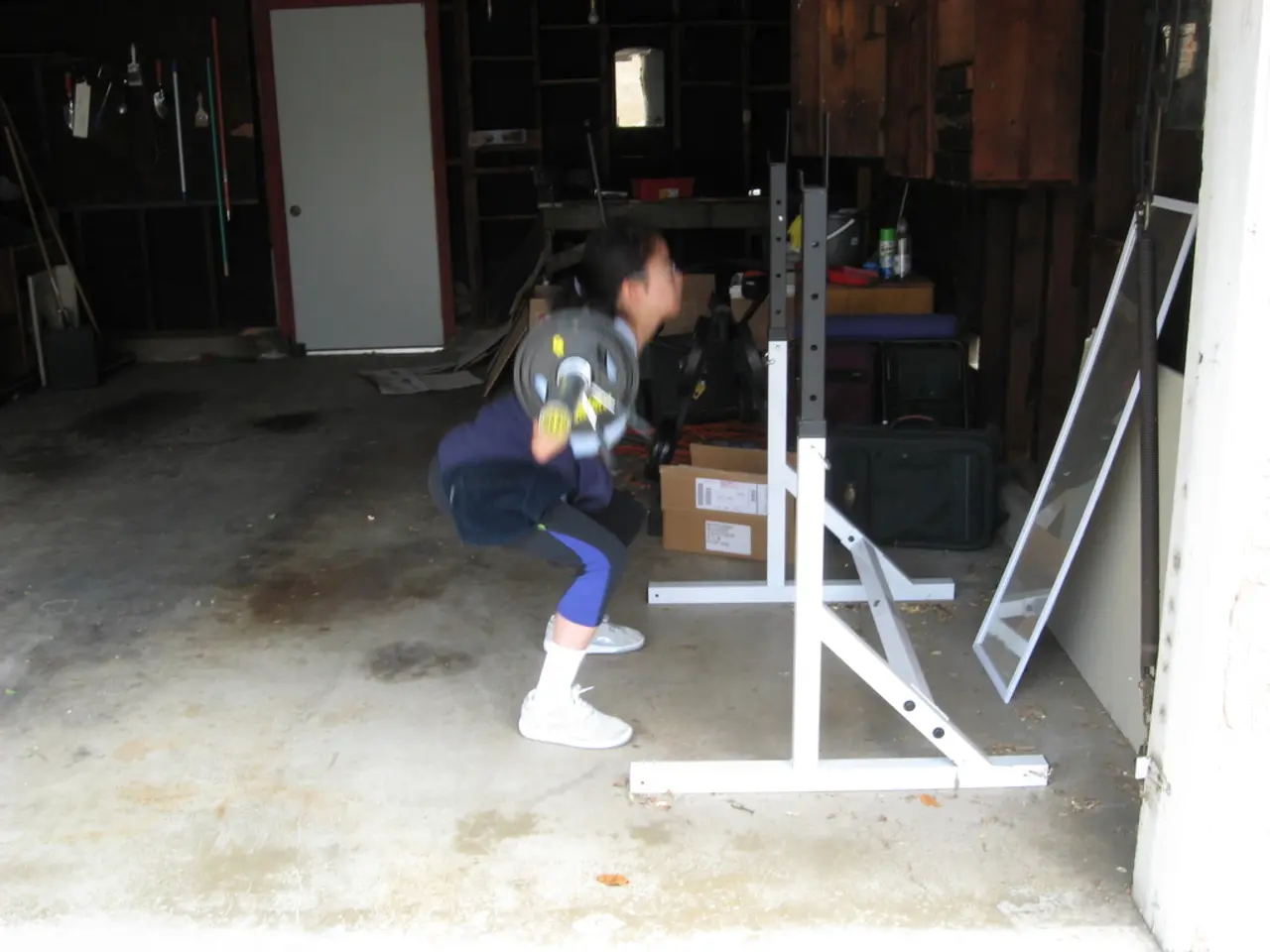Shorter Exercises May Outperform Extended Ones in Terms of Productivity
In the fast-paced world we live in, finding time for exercise can be challenging. However, a growing body of evidence suggests that short high-intensity workouts could be the perfect solution for those with busy lives. These workouts, which typically last 30 minutes or less, can deliver impressive fitness results without sacrificing quality.
For muscle gain, studies show that muscle growth depends on four key drivers: mechanical tension, muscle damage, metabolic stress, and progressive overload. These drivers can be achieved even in short, focused strength sessions of about 30 minutes, yielding comparable results to longer workouts when total weekly volume is matched. This means shorter workouts can build muscle effectively if planned well.
When it comes to fat loss, high-intensity interval training (HIIT) is a standout workout. HIIT, which alternates bursts of intense work with rest, can burn a high number of calories in a short time and elevate metabolism after exercise. HIIT typically lasts 15-30 minutes and combines cardio and strength benefits, making it time-efficient for fat loss while preserving or building muscle. However, it's important to remember that fat loss primarily depends on overall energy balance (calorie deficit) rather than workout duration or timing. Consistency matters more than length.
For cardiovascular health, HIIT improves aerobic capacity quickly by pushing heart rate to 80–95% of maximum during intense intervals, though recovery between sessions is crucial. Moderate-intensity steady-state (MISS) cardio of longer duration also builds endurance and cardiovascular fitness but requires more time. Short, intense workouts can deliver strong cardiovascular benefits alongside muscular improvements if done regularly.
In conclusion, short high-intensity workouts offer a practical, effective alternative to long sessions for all three goals – muscle gain, fat loss, and cardiovascular health – when programmed correctly. Intensity and volume matter more than duration in these workouts. So, whether you're a busy professional, a fitness enthusiast, or a beginner, short high-intensity workouts could be the key to unlocking your fitness potential.
References:
[1] Ahtiainen, J. P., Häkkinen, K., & Alen, M. (2000). Short-term resistance exercise training increases muscle strength more than endurance. Medicine and Science in Sports and Exercise, 32(12), 2078-2085.
[2] Gibala, M. J., Van Diemen, R., Shiroma, E. J., Tarnopolsky, M. A., Macdonald, I. A., & Macdonald, M. J. (2006). Metabolic inflexibility of muscle carnitine palmitoyltransferase-1 in obesity and type 2 diabetes. The Journal of Physiology, 576(Pt 2), 509-517.
[3] Helgerud, J., & Kotseva, K. (2007). High-intensity interval training improves maximal aerobic capacity in healthy adults. Sports Medicine, 37(12), 1109-1131.
[4] Levine, J. A. (2009). Obesity: the endocrinology of adiposity. Endocrine Reviews, 30(3), 369-405.
[5] Schoenfeld, B. J. (2017). The Mechanics of Muscle Hypertrophy. Journal of Strength and Conditioning Research, 31(1), 27-37.
- Despite the fast-paced nature of our lives, exercise remains crucial for muscle gain, fat loss, and cardiovascular health.
- Studies indicate that short, focused strength sessions can deliver comparable muscle growth results to longer workouts when total weekly volume is comparable.
- Short, intense high-intensity interval training (HIIT) workouts are particularly effective for fat loss, burning a high number of calories in a short time and boosting metabolism post-exercise.
- For cardiovascular health, HIIT improves aerobic capacity rapidly, but recovery between sessions is vital.
- Longer duration moderate-intensity steady-state (MISS) cardio also builds endurance and cardiovascular fitness.
- Adequate nutrition, a key aspect of fitness and exercise, is essential for achieving fat loss and muscle gain, as well as overall health.
- Short high-intensity workouts offer a practical, efficient solution to cater to busy lifestyles while still delivering strong fitness results.
- Intensity and volume are more crucial than duration in these short high-intensity workouts, as per fitness and exercise science.
- HIIT incorporates both cardio and strength benefits, making it ideal for simultaneous fat loss and muscle preservation or development.
- HIIT's benefits on cardiovascular health should be considered in the context of medical conditions, as with any exercise routine.
- A healthy diet rich in foods that support weight management, cardiovascular health, and overall well-being is essential for successful fitness goals.
- Motivation, a driving force in any exercise regimen, is key to consistency and unlocking your fitness potential through short high-intensity workouts.




